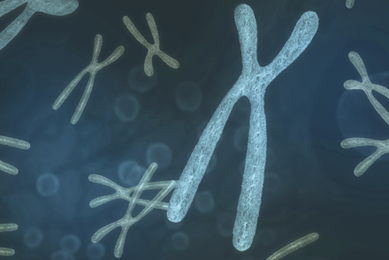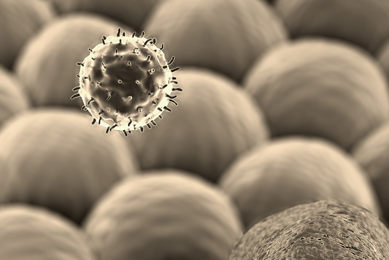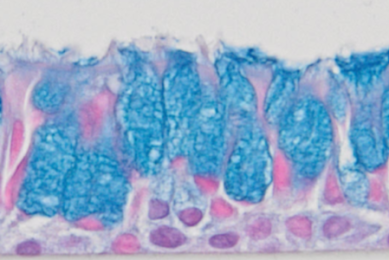The five-day gathering of the best-in-class researchers showcased the diversity of the interdisciplinary field of cell biology such as cellular dynamics, signaling and metabolism, and evolution.
With over 6,000 attendees, over 3,000 posters, and 156 vendors, the event hummed with scientific discussion among researchers from across the field of cell biology. The tradeshow floor vibrated with enthusiasm, as the conference proved to be an opportunity for many trainees to present their work for the first time and to interact with established researchers.
The conference began with a keynote by Alice Y. Ting Professor of Genetics, Biology, and by courtesy, Chemistry, Stanford University, and Chan Zuckerberg Biohub Investigator. In her riveting talk, Dr. Ting described Chemogenetic and optogenetic technologies for probing molecular and cellular networks. Some of these technologies included molecular recorders as single-cell recording of past cellular events; molecular editors for the precise manipulation of cellular biomolecules, pathways, and organelles; and proximity labeling for unbiased discovery of functional molecules.
ATCC pushes the boundaries of cell line and primary cell characterization
ATCC’s scientists presented posters highlighting two important organizational initiatives. These initiatives include building more relevant toxicological models and enhancing cell line authentication.
Kevin Tyo’s poster compared toxicological responses in 3-D airway models to 2-D models comprising freshly seeded undifferentiated HBECs. This report provided an overview on how to perform long-term testing on airway models and demonstrated the utility of airway models as physiologically relevant models for safety research in industrial hygiene and pharmaceutical development.
Ajeet Singh’s poster focused on our new efforts to characterize the whole transcriptomes of all cell lines and primary cells held within ATCC’s cell biology collection to develop an authenticated application data resource to be used as a molecular reference standard. The poster presents our initial analysis of authenticated whole-transcriptome (RNA-seq) datasets produced from 62 human kidney cell lines, including primary cells, found in ATCC’s biorepository. These diverse datasets, represented by ATCC Cell Line Land, include the first comprehensive collection of reference transcriptomes for use by kidney biology researchers.
ATCC cell lines accelerate drug development
Additionally, ATCC showcased our new cell lines for immuno-oncological therapeutic development. For example, our CAR-T Target Cells are luciferase-labeled tumor cell lines that have high endogenous expression of clinically relevant CAR-T target antigens such as CD19, CD20, and HER2. The CAR-T target luciferase reporter cells enable convenient and consistent immuno-therapeutic development by allowing you to monitor the potency and efficacy of candidate CAR-T effector cells in cytotoxicity and cell viability assays.
We also exhibited our THP-1 luciferase reporter cell lines that contain the response elements of immune-regulated transcription factors such as NF-κB, GAS, ISRE, NFAT, CRE, and AP-1. These reliable models are widely used to evaluate signal transduction pathways involved in immunomodulation.
ATCC previewed a series of tumor and immune cell lines with high endogenous expression of checkpoint inhibitory and co-stimulatory expression levels. This portfolio includes a wide range of IO targets such as: PDL1/2, B7-H3, PD1, CTLA-4, and others. These novel cell lines can be incorporated into simple blocking assays or be integrated into sophisticated co-culture cell-based drug screening assays.
In addition to the immuno-oncological therapeutic development tools, ATCC’s exhibit shared its burgeoning collection of cancer research resources, such as tumor-derived organoids, organoid growth kits, luciferase-labeled cells, and EMT Reporter Cells.
Did you know?
ATCC's new partnership with QIAGEN, ATCC Cell Line Land, is an authenticated application data resource that has 62 kidney cell lines, including primary cells from ATCC's repository.
Brian Shapiro, PhD
Marketing Segment Manager, Oncology, ATCC
Brian A Shapiro, PhD, works to communicate the scientific breakthroughs of ATCC’s product development laboratories to the biomedical research community. Brian is the Executive Producer of ATCC's Podcast, Behind the Biology. Previously, he worked at Virginia Commonwealth University, where he investigated the role of pre-mRNA splicing in the multi-drug resistance of lung cancer. Dr. Shapiro attended the Medical College of Georgia, where his research focused on adrenal physiology as well as diseases of the epidermis.
Dig into the research
 Poster
Poster
Unfolding the whole transcriptome of the ATCC Cell Line Land for its application as a molecular reference standard in the next-generation biomedicine research
This is a poster presented at Cell Bio 2022 that showcases our initial analysis of authenticated whole transcriptome (RNAseq) datasets produced from 62 human kidney cell lines including primary cells found in ATCC's biorepository.
More Poster
Poster
Newly Established CAR-T Target Antigen Luciferase Reporter Cell Lines Facilitate CAR-T Development
This is a poster presented at AACR 2022 that explores the use of CAR-T target antigen luciferase reporter cell lines as a model for studying CAR-T biofunction and validating new CAR-T agents for cancer immunotherapy.
More Poster
Poster
Evaluating Airway ALI Model Fabrication Methods and Comparing Differentiation Potential of Primary and hTERT-immortalized Epithelial Cells
This is a poster presented at Cell Bio 2022 that demonstrates an optimal method of fabricating airway models consisting of HBECs grown in collagen-coated 24-well plate inserts and cultured under air-liquid interface.
More